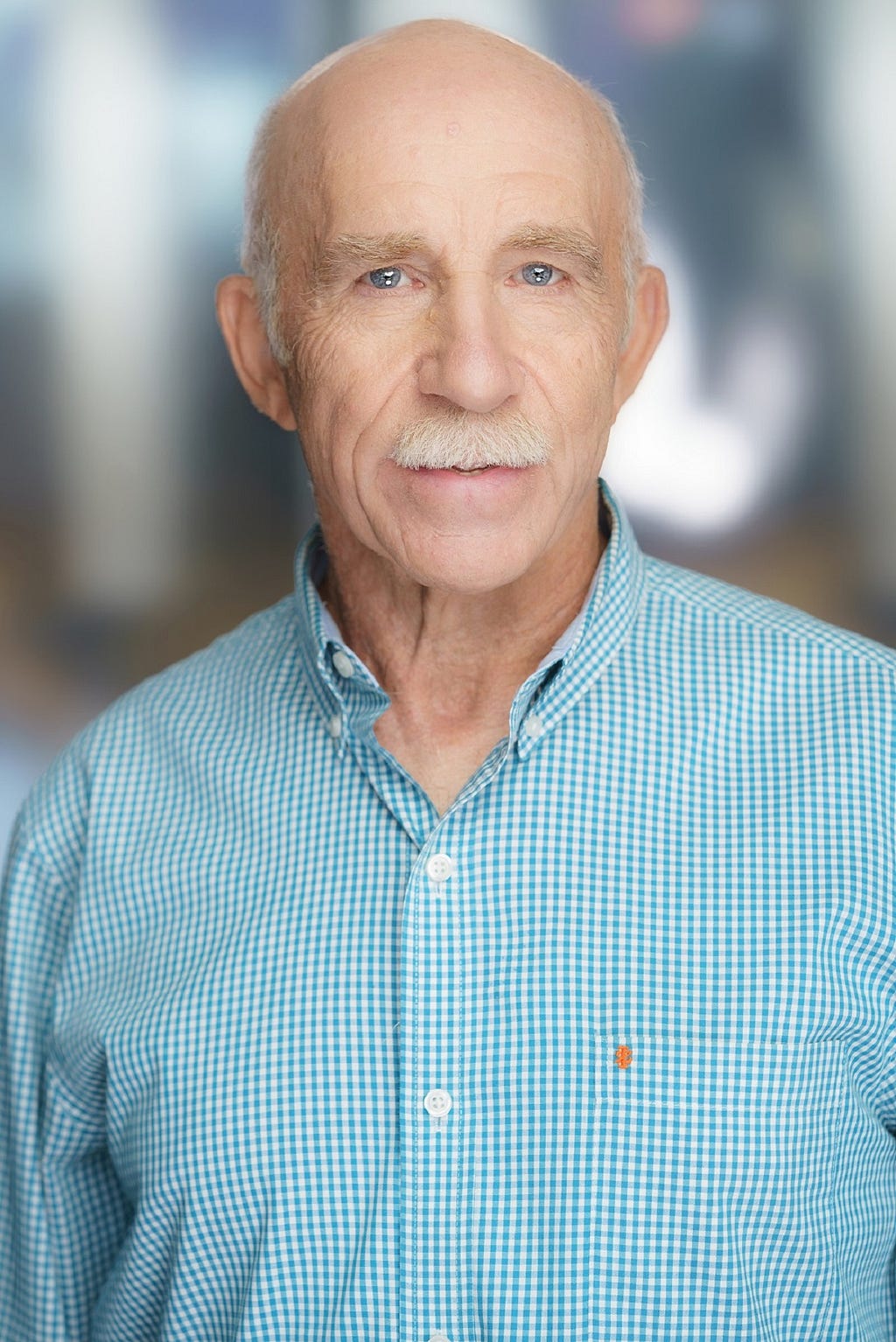Unstoppable: How Author Rick Mater Has Redefined Success While Navigating Society After A Major Heart Attack

Persevere. Go after your goals. Get a second (or third) medical opinion. Don’t let your physical limitation define you. Don’t let it result in a “why me?” mindset because, Why not you? And don’t let it stop you from engaging with the world through physical exercise.
As a part of our “Unstoppable” series, I had the pleasure of interviewing Rick Mater.
Rick Mater is a dedicated runner, Emmy®-nominated TV executive, and author. His new book Six Hours: Running For My Life in the Grand Canyon is his true story of attempting to defy the odds by running the 17 treacherous miles to the bottom of the Grand Canyon and back up to the South Rim… as a 64-year-old cardiac patient. He shares how the high-risk run was more than an athletic endeavor, and how it compelled him to reflect on life, mortality, and his legacy. He has run the Grand Canyon twice as a cardiac patient and after surviving a heart attack, has four stents in his left anterior descending artery and a defibrillator implanted in the side of his chest. He is also the author of the critically acclaimed novel Beat. Formerly married, he has two 20-something children and currently resides in Los Angeles.
Thank you so much for doing this with us! It is really an honor. Our readers would love to get to know you a bit better. Can you share your “backstory” with us?
I was born in England and grew up in California, New Jersey, and Munich, Germany. As a teenager, I was profoundly influenced by the works of Henry Miller, Jack Kerouac, and Ernest Hemingway, and always aspired to become a writer. My career, however, ended up being in television where I have spent the past 40 years and where, I am proud to say, I garnered an Emmy®-nomination. The running started in my teen years. I was a miler in high school, ran cross country in college, and went back to running seriously in my 40s. My physical limitation — a heart attack and cardiac disease — hit me later in life and was quite an awakening. I had to make physical adjustments, as well as manage the worry and expectations of my family. One’s challenges always have a ripple effect on those closest to us.
Do you feel comfortable sharing with us the story surrounding how you became ill? What mental shift did you make to not let that “stop you”?
I suffered a heart attack on a run in 2007 at age 59 and required an emergency angioplasty when three stents were placed in my LAD “widow-maker” artery. Had I not been a runner I would have died of a massive, fatal heart attack. Instead, the cardiologist who performed the angioplasty explained that due to my distance running, my body had built up ancillary blood vessels which permitted enough blood to get around the blockage to spare my life. My cardiac issues were hereditary, and the disease is chronic, regardless of my attention to a good diet and plenty of exercise.
The cardiologist also told me it was time to hang up my running shoes. Running had become a “risk factor” for another heart attack or even a stroke. Wrong answer! I found a cardiologist who was an avid cyclist and more sympathetic. He agreed to let me move forward with careful exercise. And soon enough, I was back to running.
I had to make a mental shift knowing that another cardiac emergency could occur at any time. I needed to be extra careful to monitor myself for any symptoms on runs (shortness of breath, chest pain, for example). Now I make sure to carry emergency contact information with me on runs and continue to do an annual treadmill test while hooked up to an EKG. One of these tests was actually what led to a second angioplasty in 2011. In 2016, following another cardiac emergency, I had a defibrillator implanted in the side of my chest. So, I now have my own personal “shock paddles” in the event of another cardiac emergency.
Can you tell our readers about the accomplishments you have been able to make despite your illness?
I ran the Grand Canyon. Twice! To the bottom and back up (17 grueling miles) in my 60s and after becoming a cardiac patient. I also won my age group in a 5K race a few months after my emergency angioplasty and have competed in other races.
Now at age 74, I still run regularly, including 7–10 miles every Sunday.
What advice would you give to other people who have disabilities or limitations?
First, I don’t dare speak for others who may face far more challenging physical limitations than I do, and I really don’t consider myself as having a “physical limitation.” I have cardiac issues. This has certainly brought added challenges and inconveniences to my life and activities but in no way can I equate them to disabilities such as being confined to a wheelchair or missing a limb or two, e.g., Iraq War vets. All of us Cardiac Athletes only have a “disability” within the context of the running/cycling/swimming worlds.
So, speaking for myself and my particular limitation, I would say: Life is about moving forward, not giving into the naysayers or people saying, “you can’t.”
Persevere. Go after your goals. Get a second (or third) medical opinion. Don’t let your physical limitation define you. Don’t let it result in a “why me?” mindset because, Why not you? And don’t let it stop you from engaging with the world through physical exercise.
None of us are able to achieve success without some help along the way. Is there a particular person who you are grateful towards who helped get you to where you are?
My second cardiologist who supported me going back to running. He was a cyclist and understood the desire to stay active. I was determined to go back to running and it was better to do that with the supervision of a cardiologist who agreed that it was doable. I wasn’t going to stop looking until I found a doctor who understood, so luckily this happened with the second opinion visit and he became a supportive partner in my endeavor.
How have you used your success to bring goodness to the world?
With SIX HOURS: Running For My Life in the Grand Canyon I hope I can provide inspiration for other cardiac patients to be physically active. And, to spread the word you can stay physically active well into your 60s, 70’s and beyond. Even take on a challenge like running the Grand Canyon!
I’m a member of Cardiac Athletes, which is an international group of runners, swimmers, and cyclists who support each other in pursuing sport despite hereditary cardiac issues. We are often heart attack survivors who have stents, defibrillators, and pacemakers.
Can you please give us your favorite “Life Lesson Quote”?
“You can never win or lose if you don’t run the race” — The Psychedelic Furs song “Love My Way”
We are very blessed that some of the biggest names in Business, VC funding, Sports, and Entertainment read this column. Is there a person in the world, or in the US whom you would love to have a private breakfast or lunch with, and why? He or she might just see this 🙂
I would love to chat with Dean Karnazes, ultramarathoner and New York Times bestselling author. He gave me my cover quote for the book. His book Ultramarathon Man is both entertaining and inspirational and is one of my favorite running books. Plus, he has achieved some epic distance running feats.
Unstoppable: How Author Rick Mater Has Redefined Success While Navigating Society After A Major… was originally published in Authority Magazine on Medium, where people are continuing the conversation by highlighting and responding to this story.
